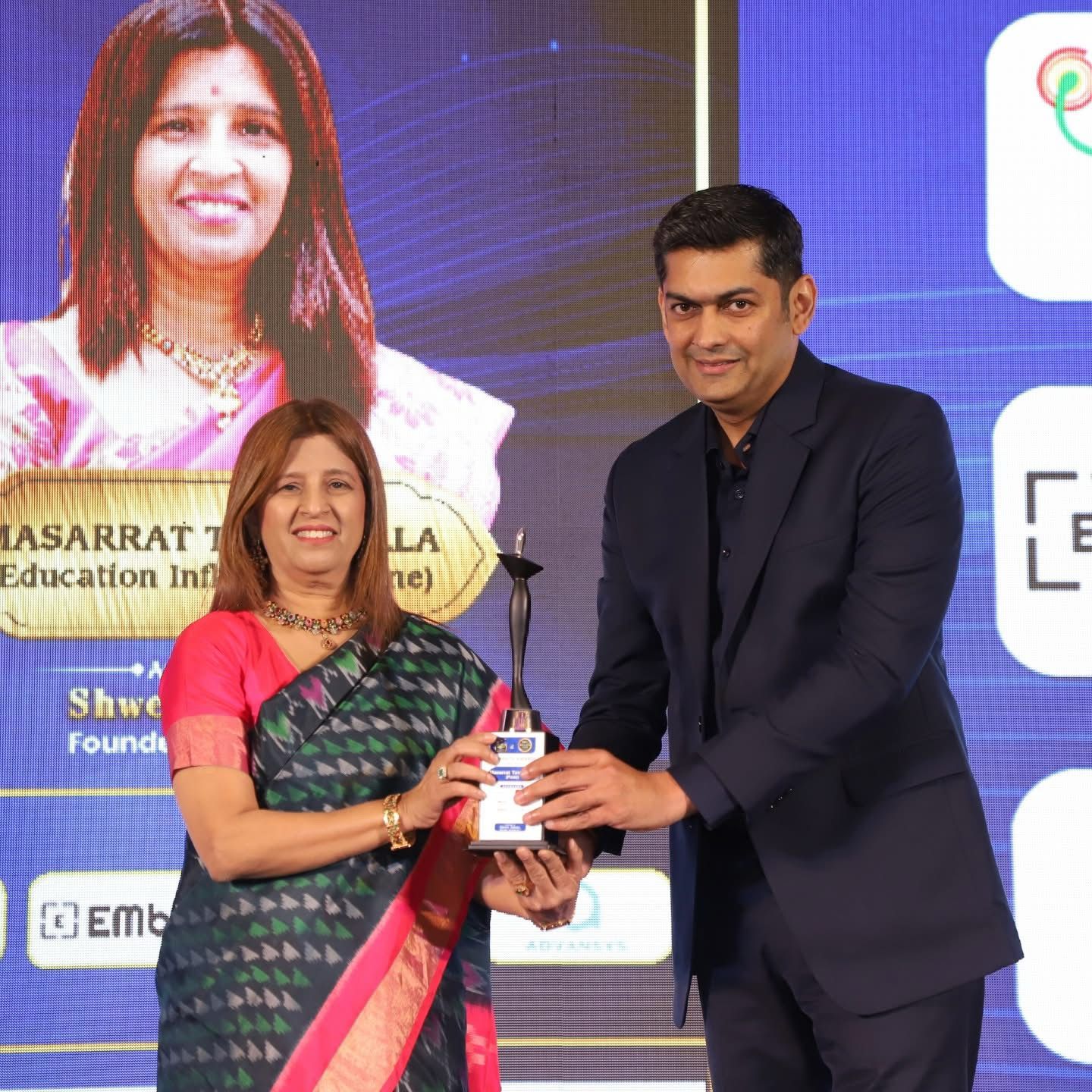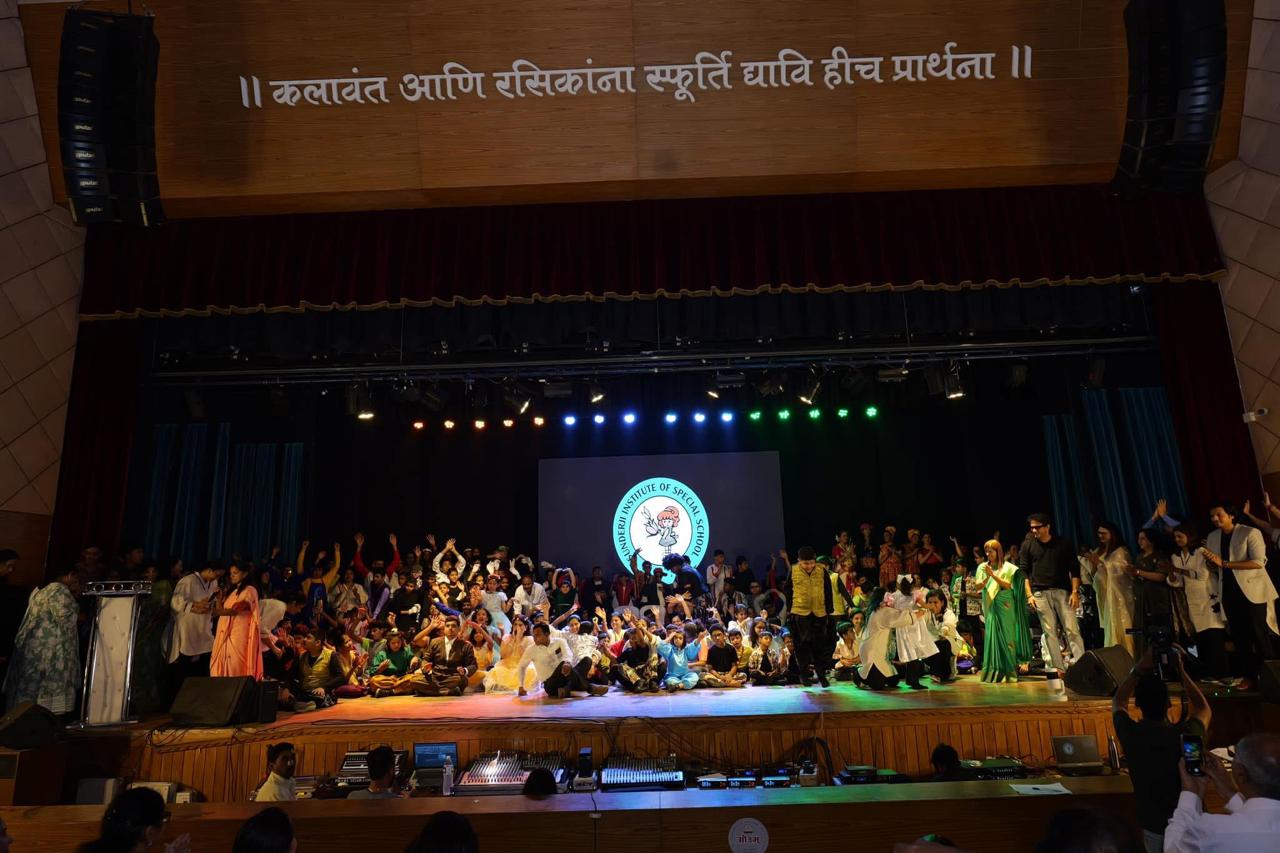A passionate educator, Masarrat Tavawalla is the Founding Member and Director of Sunderji's Global Academia. An alumnus of St. Xavier's College (Mumbai), Mrs. Masarrat holds a B. A in Psychology, and an M.A in Psychology and Child Development. She also has a B.Ed. along with an M.A. in History from S.N.D.T (Mumbai) as well as a Certificate in Guidance & Counselling. Mrs. Masarrat has also Remedial Teachers' Training Levels 1 to 5, specializing in the Education of Children with Special Needs. She is also a Founding Member of the Pune LD Forum and a Member of the Maharashtra Dyslexic Association. Her articles have been presented in various newspapers and has presented papers on several national and international forums.
In an exclusive interview with Nitish Raj; Editor-in-Chief, Today Magazine the renowned educationist talks about the various aspects of education along with challenges of children with special needs.
Q.1: How do you see your journey from an MA in psychology to a renowned educationist?
MT: This journey was indeed not very easy as it saw its own challenges in that era. Especially when you get married at the young age of 19 and are adorned with the responsibility of a kid immediately after! I had my child at the age of 20 and since then I juggled my homely duties, motherly responsibilities, and the completion of my education all in one go. My first stint as an educationist was with my son’s school, Bishop High School, Pune. 
My educational background in psychology helped me to understand the mindset and developmental aspects of children better. I loved teaching kids. One fine day, an encounter with the Sunderji Sisters of Sunderji Global Academia changed my entire life. They took me as a principal in their community school and I was blessed to be mentored by Madhvi Kapoor of St. Mary, who was a fantastic educationist way beyond her time. I was passionate about my teaching, and it gave me immense happiness and pride. I followed my passion, dedication, and learning ever since to attain and provide the best for the children that I worked for in my institute.
Q.2: How do you see the kids being enrolled in Nursery Schools as young as 3 years of age as compared to the old times when children were relatively older?
MT: If you ask me truly, a kid for 6 years should be in an environment where he should just play and interact with the world around him. If we do not provide the required stimulation, play activities, ideal environment, and physical setup for the development of the child at home, then we can send him/her to a good kindergarten school where he/she can find a suitable environ to blossom and flourish to their full potential and capabilities.
Q.3: Why is still being a teacher in a private education institution not considered a permanent career option and merely a side hustle?
MT: Yes! To be honest, even today, the salaries of teachers are not very good, and teaching is still not a preferred career option. It's also about the societal mindset, as the country has not been able to offer the desired respect and rightful ownership to the teachers. I think the education system should initiate a proper 5-year or 4-year course for becoming a teacher, this can help make the teaching profession a sought-after and better career option. The scenarios of teachers are overall changing gradually, but it will still take time.
Q.4: What are the extra challenges in educating special children as compared to others?
MT: First of all, the learning environment of special children is very different; we must modify it according to their needs. As there are various kinds of disabilities like autism, ADHD, LD, Down Syndrome, and others, we have to design their learning environment according to their individual and specific needs. Secondly, we have to work on the adaptability of the curriculum. We also have to train the parents. And all this while, we also face the communication challenge that we have to overcome. Developing a sense of inclusion for specially abled children in our homes, educational system, society, community, and our hearts and minds, is of utmost importance. However, if these children are to be included in mainstream educational institutes, proper tools, techniques, training, and expertise would be required to let them become a part of the regular curriculum. Alternatively, a special school and tailored curriculum works well for many such cases.
Q.5: How do you see autism as a growing concern, and how could it be addressed by society?
MT: We would need a lot of autism warriors. We need to raise awareness and advocacy regarding the lifestyle of would-be parents before childbirth. As the number of special needs children is growing at an alarming rate, we need to nip this problem in the bud as a society. We need to focus on how we can bring a mass model for the families for acceptance of the child and training of parents, caregivers, and families. Can we have an early intervention in the diagnosis of special children? Can we have separate government policies for special children? All these remain in question until we prepare for a complete awareness, acceptance, and addressing of the growing concern. Everything that is done at the family, community, and society level, has to be backed by strong government policies and mediation by the administration and authority.






